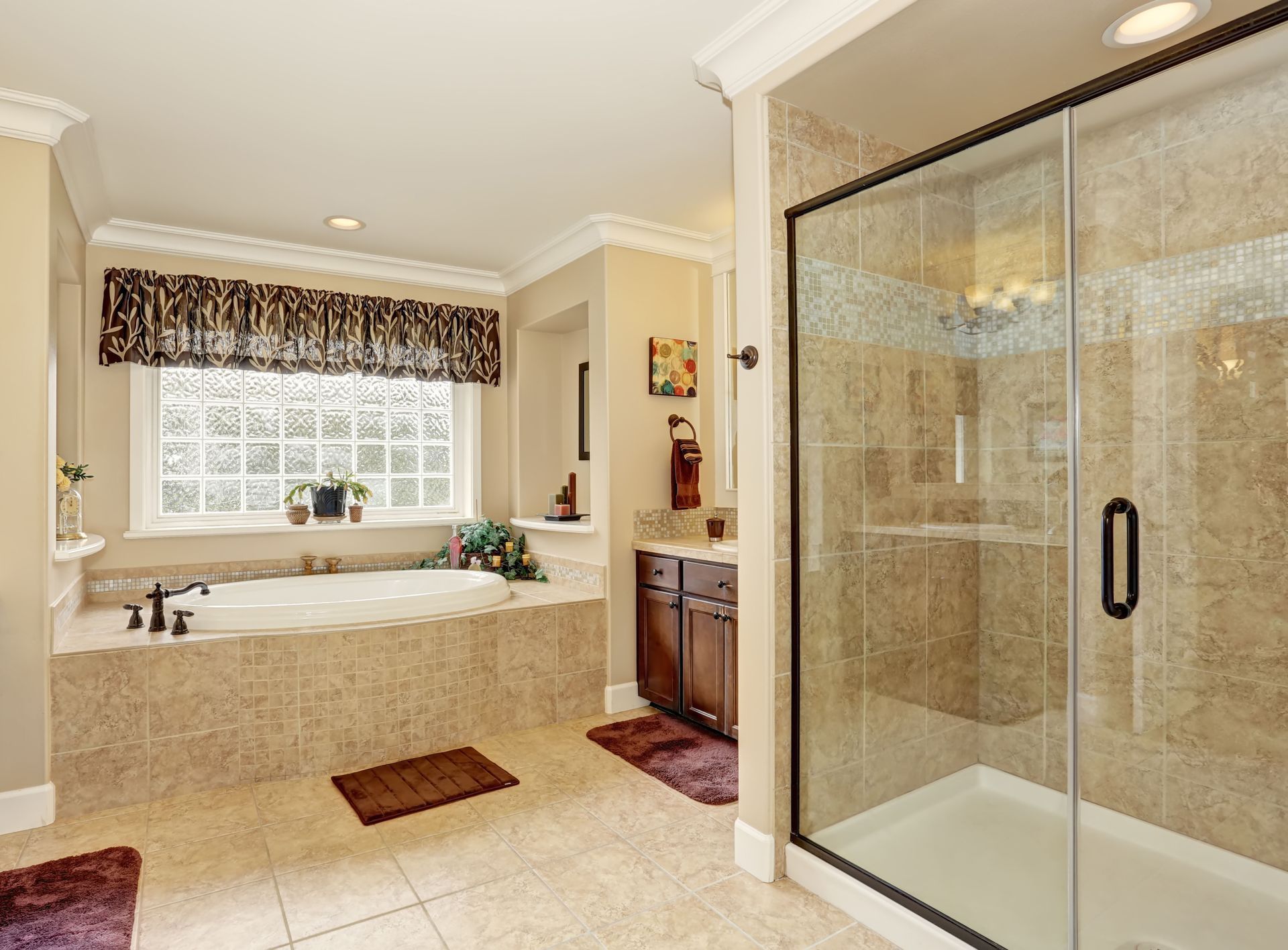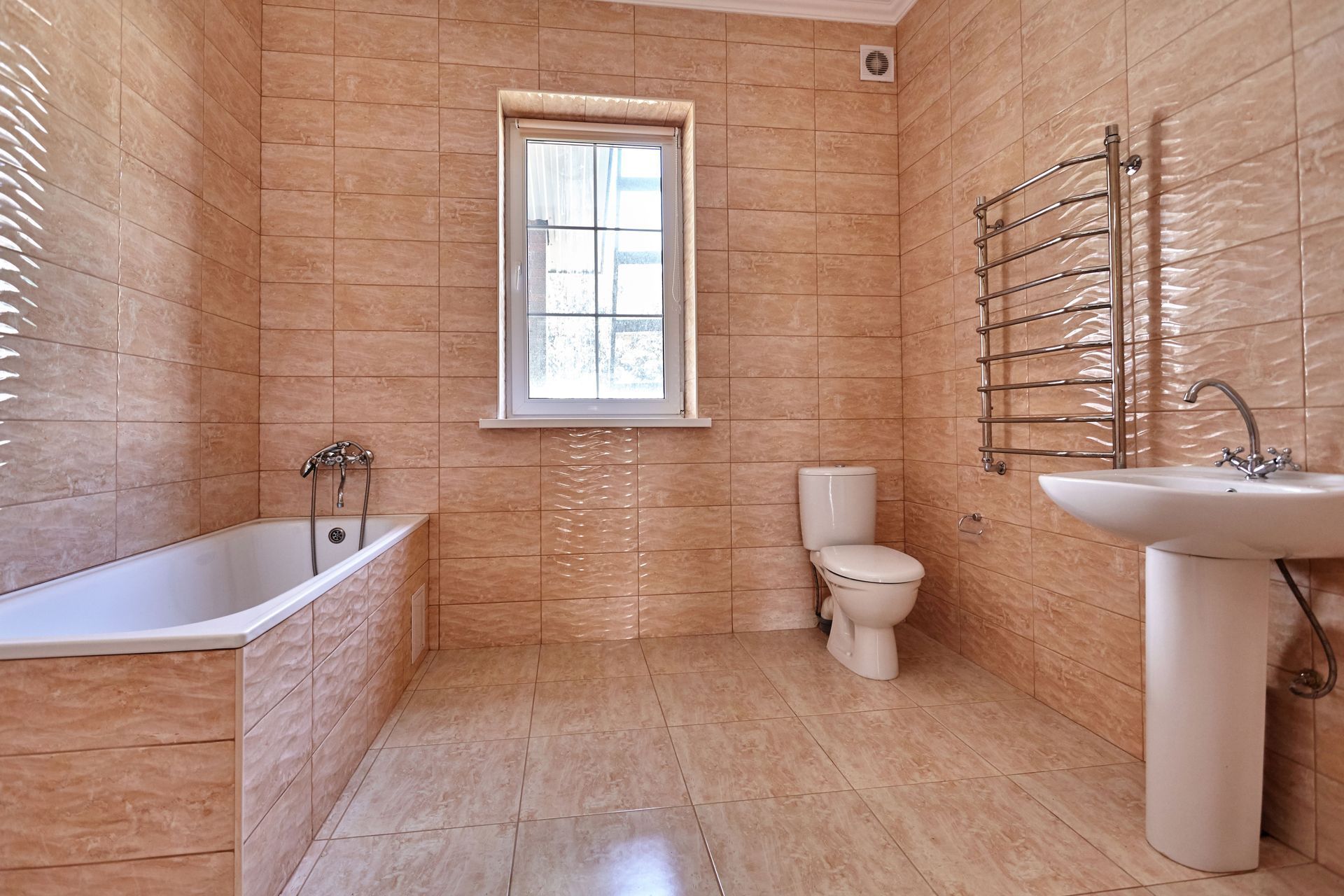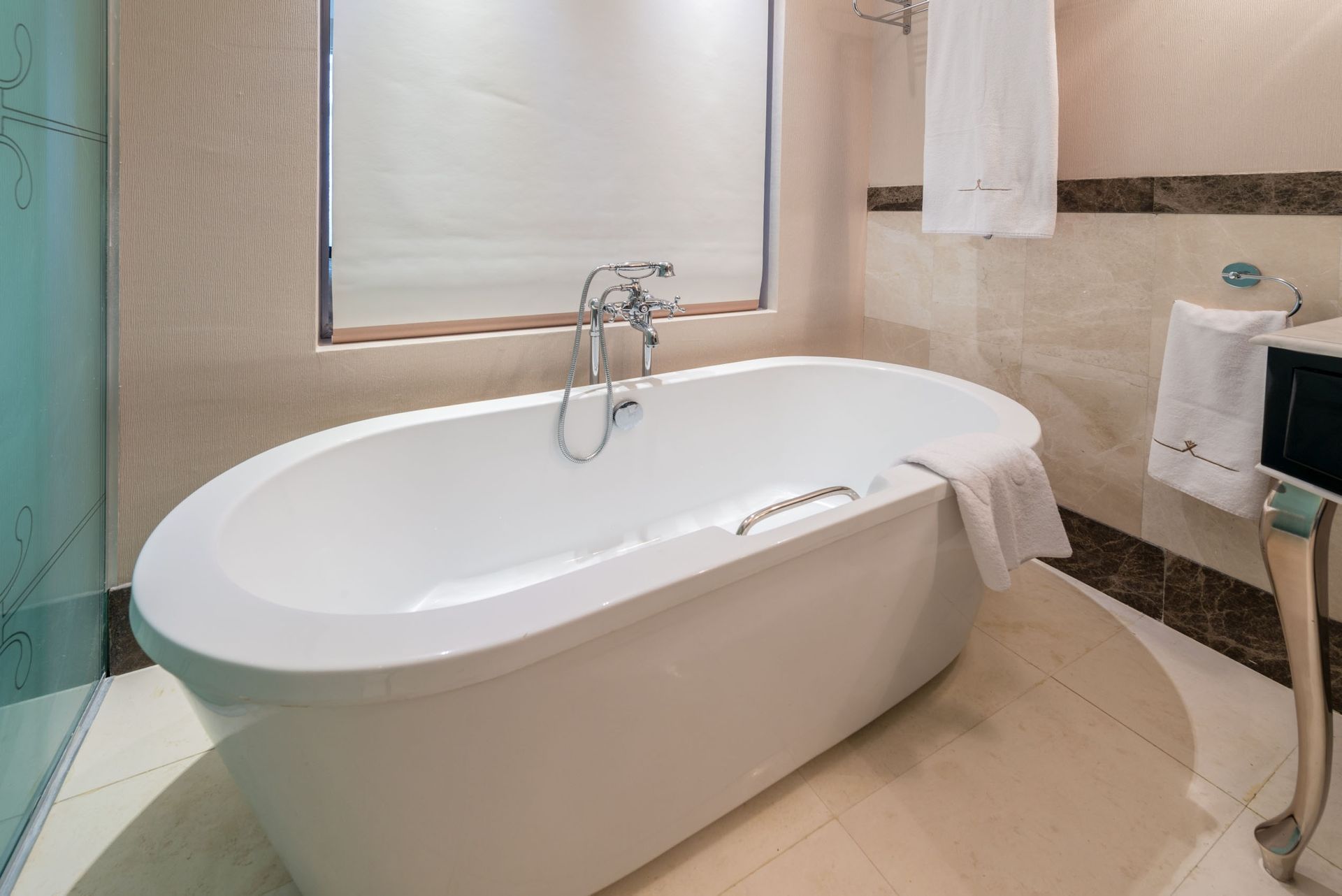December 16, 2024
Bathtub refinishing is a practical approach for homeowners looking to improve their bathrooms without the high cost and hassle of replacement. This process not only rejuvenates the appearance of a worn tub but also extends its lifespan, making it a cost-effective choice. Understanding the bathtub refinishing process empowers homeowners to make informed decisions about their bathroom remodels. Let's dive in!
What Is Bathtub Refinishing?
Bathtub refinishing, also known as recoating or reglazing, involves applying a new surface to an old tub. This process revives the bathtub's appearance. The process typically involves cleaning, etching, and applying a durable coating to the tub's surface. Professional refinishing is an excellent alternative to replacement, helping homeowners save money and time while achieving a like-new finish.
Common Materials and Tools Used in Refinishing
The refinishing process involves using specific materials and tools to ensure a durable and appealing finish. Key materials include cleaning agents, bonding agents, primers, and topcoat coatings. Specialized tools, such as spray guns, sanders, and protective gear, are also essential for professionals to deliver a smooth and even application. Safety equipment, like masks and ventilation systems, are necessary to protect against fumes and dust during the process. The right combination of materials and tools significantly impacts the quality and longevity of the refinished bathtub.
Benefits of Refinishing Over Replacing
Choosing to refinish rather than replace a bathtub offers several advantages. It is more cost-effective, as refinishing can be a fraction of the cost of a new tub installation. Refinishing is also quicker, usually completed in a day or two, avoiding the lengthy demolition and installation process. Additionally, refinishing is environmentally friendly since it reduces waste by reusing the existing tub. A refinished bathtub can enhance the aesthetic appeal of the bathroom, leading to increased satisfaction with the living space. According to GoodRX, taking hot baths twice a week can reduce depression symptoms after four weeks, so a newly refinished tub can contribute to improved well-being.
The Process
Now, let's take a deeper look into the professional bathtub refinishing process and its many steps.
Assessing and Inspecting
The first step in the refinishing process is a thorough assessment of the bathtub's condition. This involves inspecting for damages like cracks, chips, and rust that may affect the final result. Understanding the material of the tub is essential, as different materials require unique preparation techniques. Professionals evaluate whether repairs are needed to ensure a smooth application of the refinishing products. The inspection results guide the preparation process, ensuring that all issues are addressed before the refinishing begins.
Repairing Damages and Surface Imperfections
After the initial assessment, any damages or imperfections on the bathtub surface are repaired. This stage involves filling chips with specialized fillers that adhere well to the tub material. Sanding is also performed to remove any rust and smooth out repairs, ensuring a level surface. Addressing these imperfections is crucial to achieving a flawless refinished surface. By correcting these issues early, your contractor ensures the refinishing products have a stable foundation for adherence.
Cleaning and Stripping the Old Finish
To prepare the bathtub for refinishing, thorough cleaning is essential. All oils, soap scum, and residues must be removed to ensure optimal adhesion of the new finish. Professionals use industry-grade cleaners that effectively strip away the old finish without damaging the underlying material. This step may also involve etching the surface with acid or sandpaper to further enhance bonding. Proper surface preparation is a critical element in prolonging the life of the refinished surface.
Ensuring Proper Ventilation and Protection
Ventilation and protection are important considerations during the bathtub refinishing process. The chemicals used can produce harmful fumes, so adequate airflow is necessary to ensure safety. Professionals often use fans, air movers, and open windows to improve ventilation in the bathroom. Protective coverings on floors, fixtures, and nearby surfaces prevent damage from spills or overspray. Additionally, safety gear for workers, including masks and gloves, ensures a safe working environment throughout the process.
Setting Up
Before applying any refinishing products, the contractor will set up their equipment carefully. This involves preparing spray guns, mixers, and other tools, ensuring they are ready for use. They also review safety precautions, such as using fire retardant materials and keeping flammable substances away from the work area. Ensuring proper equipment setup and adherence to safety protocols is key to a successful refinishing project. Additionally, protecting oneself and the home environment from potential hazards is paramount during this intricate process.
Applying Primer
The primer application begins with a final cleaning of the tub to remove any dust or residue. Professionals use a spray gun to apply an even layer of primer, ensuring complete coverage of the surface. Each coat must dry completely before additional layers are added to build a solid foundation. Multiple coats may be necessary, depending on the tub material and its condition. Once the final coat is applied, the primer is left to cure to ensure maximum adhesion before proceeding with the topcoat application.
Coating
The topcoat is the final layer of the bathtub refinishing process. The process of mixing and applying the topcoat requires precision and careful adherence to the manufacturer's instructions. Professional refinishers combine the components of the coating and stir them thoroughly to ensure uniformity and consistency. A spray gun is typically used to apply even coats to the bathtub surface, with careful adjustments made for viscosity and spray patterns. The application must be done in light, even strokes to avoid runoff and uneven coverage. Each coat must dry adequately before any additional layers are applied to improve the strength and appearance of the finish.
Curing and Setting Time
The final setting and curing time of the topcoat are critical to achieving a durable finish that withstands regular use. Once applied, the coating is allowed to dry under optimal environmental conditions to cure completely. During this time, the tub should be protected from moisture, dust, and impact. Professionals use equipment to maintain a controlled environment, ensuring the best results for the curing process. Adequate curing guarantees that the refinished surface is resilient, beautiful, and ready for regular use.
Ensure Maintenance, Longevity, and Durability
Regular cleaning is essential to maintaining the appearance and longevity of a refinished bathtub. Use non-abrasive, gentle cleaners to prevent damage to the surface coating. Avoid harsh chemicals like bleach or strong acids, which can cause discoloration and deterioration. A microfiber cloth or sponge is ideal for wiping down the tub, as they are effective yet gentle. Proper cleaning techniques ensure that the refinished surface remains in excellent condition.
Simple strategies can enhance the durability of a refinished bathtub, ensuring enduring satisfaction with the investment. Use protective mats to minimize wear from constant contact or impact on the tub surface, particularly in high-use areas. Ensure the tub remains dry after use by regularly drying surfaces and fixtures with a soft towel. Protective coatings, applied periodically, enhance the tub’s durability and resistance to environmental elements. By implementing these strategies, homeowners maximize their refinishing investment, maintaining an attractive and functional bathtub.
Understanding the bathtub refinishing process highlights its value as an economically and environmentally sound alternative to replacement. If you're ready to get started, get in touch with our experienced team at Bath Magic. We're eager to assist you soon!






